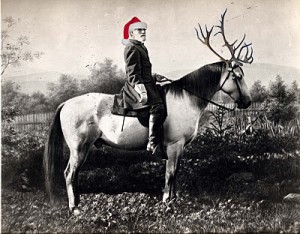Another look at the current magnifying glass on Lee, this one citing the quote I most often go to when discussing the topic.
I do have one bone to pick with the author, though – Grant’s actions do indicate that he had an abolitionist streak. His father in law was a wealthy slaveowner, and gifted Grant and Julia a slave when they married. At his lowest point, when he was broke and unable to make ends meet, he manumitted the slave, when an adult male would have brought in enough money on the open market to make Grant’s money woes disappear. Yet another facet with which to compare and contrast Lee’s mistreatment of Arlington’s slave population!
We already have a better way to look at Robert E. Lee. Not an angry way, but a just one.
In his memoir, Ulysses S. Grant, a general greater than Lee, described his feelings upon meeting Lee in April 1865 at Appomattox, as Lee surrendered his Army of Northern Virginia. Grant wrote, “I felt like anything rather than rejoicing at the downfall of a foe who had fought so long and valiantly, and had suffered so much for a cause, though that cause was, I believe, one of the worst for which a people ever fought, and one for which there was the least excuse.”
In one sentence, Grant manages to distinguish between Lee’s qualities as a general and the terrible cause — the destruction of the United States for the benefit of slavery — to which Lee put his talents.
Source: What Ulysses S. Grant would tell Trump about Robert E. Lee – The Washington Post



